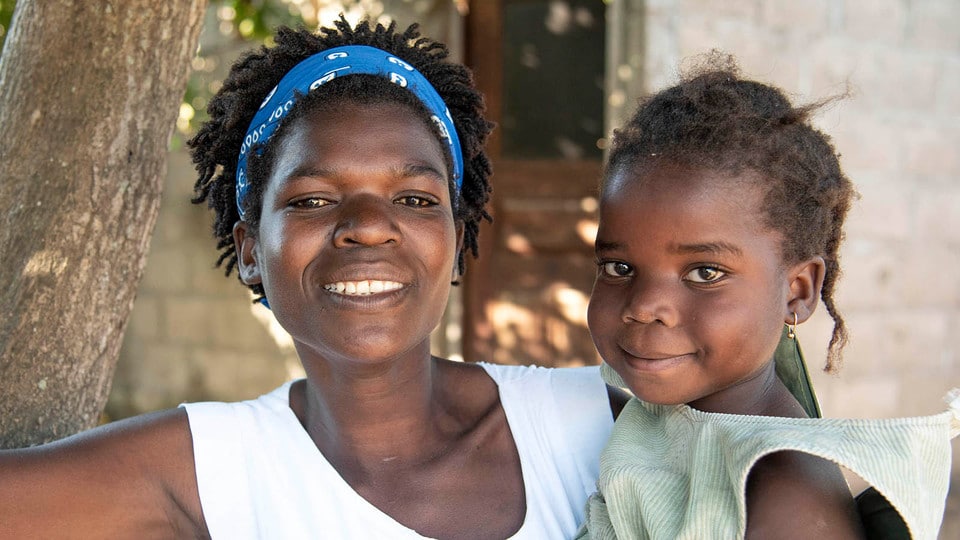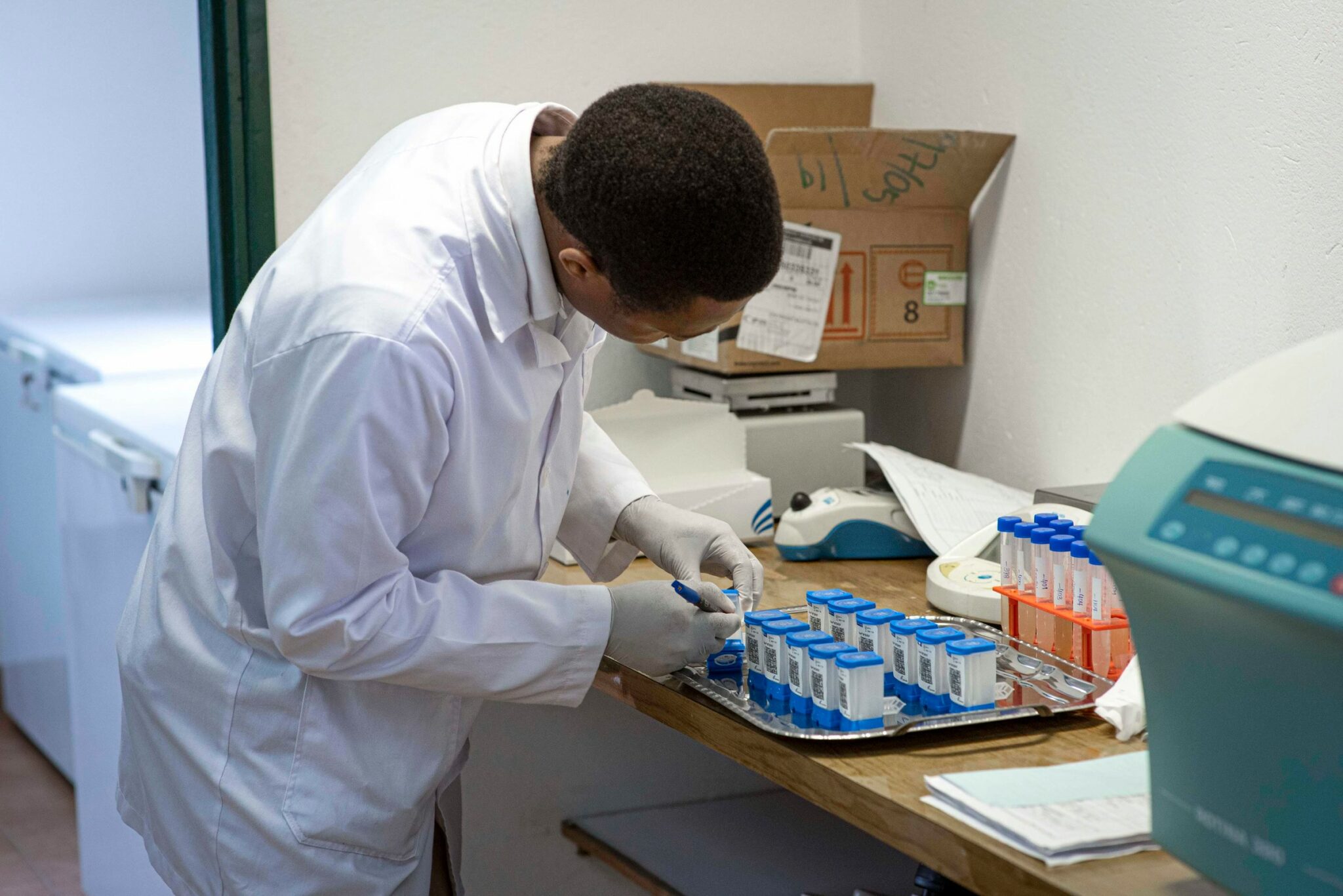
Supporting rapid diagnostic testing for Human Papillomavirus (HPV).
APOPO’s team in Maputo, Mozambique is thrilled to share initial results from the USAID funded project that uses the APOPO lab team to support Population Services International (PSI) Mozambique in conducting a research study (launched in early 2020) on the feasibility of integrating cervical cancer screening into existing public sector family planning services. One aspect of this study is offering testing for Human Papillomavirus (HPV)—including self-sampling—to support cervical cancer screening among women and girls in Gaza Province and Maputo City.
APOPO’s TB Detection program in Mozambique has been running since 2013, hosted by local partner the Veterinary Faculty of the University Eduardo Mondlane (UEM). Our integrated TB detection approach in Maputo helps to identify additional TB cases by collecting and re-evaluating patient sputum samples from partner clinics and returning results within 24 hours. The first of APOPO’s programs to implement the quick results turnaround allowing newly diagnosed patients to start treatment early.
This has successfully provided seven years of experience in TB detection rat research and optimizing TB detection services in the field. The results show clearly that APOPO’s rapid TB diagnostic services combined with community action contribute not only to increased case detection, but linking patients to care.

In 2018, APOPO acquired a 16-module GeneXpert machine allowing APOPO to further study the rats as a diagnostic tool compared to the GeneXpert and effectively restoring sample throughput as APOPO was able to fill a demand for Xpert MTB/RIF diagnosis from the health authorities.
APOPO believes that the established diagnostic infrastructure and smooth workflow from sample collection to testing and result reporting could serve also other health purposes. So, when the organisation was approached by PSI Mozambique, an NGO active in the health sector with a research project that included specific questions around HPV, we were thrilled to begin a unique collaboration for the detection of yet another deadly virus.
Human papillomavirus (HPV) is a viral infection that’s passed between people through skin-to-skin contact. There are over 100 types of HPV, more than 40 of which are passed through sexual contact. Many people with HPV don’t develop any symptoms but can still infect others through sexual contact. Often HPV goes away on its own and does not cause any health problems. But some types can cause health problems like genital warts and cancers like cervical cancer. HPV Diagnostics have generally been challenging so APOPO hopes to improve this using a new integrated PCR system that runs on the testing platforms used at APOPO laboratory for TB detection.
HPV can affect/infect everyone, yet women and girls in the reproductive age are particularly vulnerable, even more if they are living with HIV. A group that is also extremely vulnerable to TB.
Covid-19 led donors and health authorities to pause research activities from mid-March but these resumed in late August. The project continues and in roughly 5 months of operations this year, APOPO has already tested 1,404 samples and found 468 cases of HPV in Maputo. First results show that molecular testing has a high detection yield and APOPO’s fast reporting to health clinics allows more women to access different treatment options.
This unique collaboration with PSI shows that the experience acquired through the TB detection project, originally set-up for research, can be of direct impact for people awaiting a diagnosis. It also shows how in-depth knowledge on rapid testing, generated within the TB ecosystem, is highly valuable for other areas of health care, especially in settings with limited diagnostic infrastructure.
This article is derived from the Subject Data funded in whole or part by the National Academy of Sciences (NAS) and USAID under the USAID Prime Award Number AID-OAA-A-11-00012. Any opinions, findings, conclusions, or recommendations expressed in this article are those of the authors alone, and do not necessarily reflect the views of USAID or NAS. APOPO TB Mozambique is most grateful for the collaboration and support of all project partners in Maputo.




